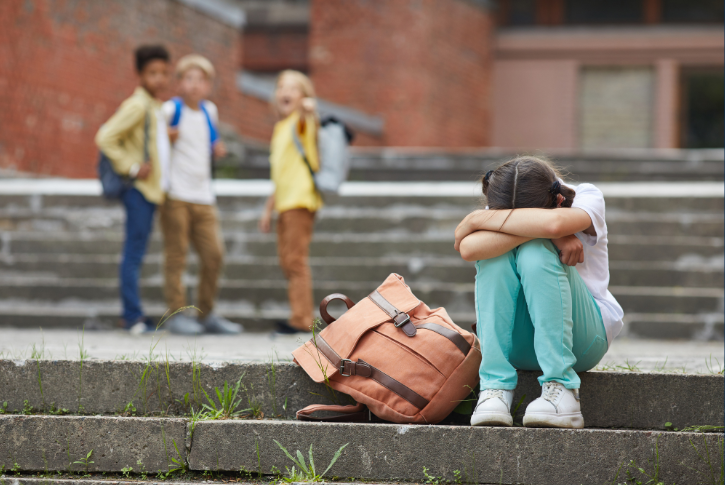As bullying continues to affect students across Tennessee, schools are taking steps to respond through improved reporting protocols, parent involvement, and counselor-led support.
Districts across the state are working to strengthen their anti-bullying efforts by equipping families with resources and encouraging proactive communication between home and school. From understanding how to report incidents to knowing what supports are available, parents play a critical role in ensuring children feel safe and heard.
To help guide families through these situations, Summer Hughes, a school counselor in Kingsport, offered practical advice on how to advocate for children and navigate the response process when bullying occurs.

What Is Bullying and How Does It Affect Children?
According to the Centers for Disease Control and Prevention (CDC) and leading bullying prevention and child psychology researchers like Dan Olweus, bullying is characterized by three critical elements: intent to cause harm, repetition over time, and a power differential.
These features distinguish bullying from ordinary conflict or disagreements between peers. It may inflict physical, emotional, social, or educational harm on the victim and can occur in various settings such as schools, neighborhoods, or online spaces
As Tennessee schools work to strengthen anti-bullying efforts, families often face uncertainty about how to take action when their child may be a victim.
Hughes, a school counselor at George Washington Elementary said the first step is talking to your child and documenting everything.
How to Talk to Your Child About Bullying at Home
Before involving the school, take time to talk with your child in a comfortable atmosphere and gather a full understanding of what they’re experiencing.
Ask open-ended questions like, “What happened next?” or “How did that make you feel?”
“We want to make sure the child feels heard and safe,” Hughes said. “Understanding their point of view helps everyone involved respond better.”“Before approaching the school, make sure you have a clear understanding of what your child is experiencing,” Hughes said. “Ask open-ended questions and get as many details as possible.”
Steps to Take Before Contacting the School
Hughes, who holds a master’s degree in school counseling from East Tennessee State University, emphasized the importance of keeping a detailed log of incidents, including names, dates, locations, and any adult witnesses.
“The more specifics you have, the better,” she said. “It helps the school identify patterns and take appropriate action.”
As there can be different ways to handle bullying depending on the school, grade, and even district, Hughes recommended doing your research and being informed before entering the conversation.
“Familiarize yourself with the school’s anti-bullying policies and any relevant state or federal laws. This will help you advocate for your child’s safety and well-being more effectively. Each school system has a bullying policy and it is often printed in the student handbook. This will include policies and procedures each school has to follow when addressing bullying reports.”
How to Report Bullying at School in Tennessee
Parent intuition often says to go straight to the top, to the principal or director, to address issues. Hughes, however, a seasoned school counselor, recommends beginning the conversation with your child’s teacher or guidance counselor.
“Start by contacting the teacher or the School Counselor,” she said. “They are often the first to hear about bullying and can provide immediate support. Ask the teacher about his or her observations: have they noticed or suspected bullying?”
Then, the counselor or teacher can connect you with the principal or director and will be able to support your efforts during the meeting.
“Often they will refer to the principal or school administration if a bullying investigation needs to be opened, or if the problem goes beyond what can be solved in the classroom,” said Hughes.
What Schools Can Do to Address Bullying
The school can make a plan specific for your child if the evidence is showing a potential bullying threat.
Hughes has seen many different action plans during her time as a counselor and recommends asking for a plan that fits your child’s needs.
“Ask the school what steps they plan to take to address the bullying. This could include talking with the students involved, monitoring the situation, or implementing any restorative practices or interventions,” she said.
She noted that while not every incident may meet the legal definition of bullying, schools can still step in with a plan to de-escalate the situation and prevent it from escalating further.
“This might include monitoring the area/time of day more frequently, having restorative conversations with each party, implementing a separation plan, along with many other options to ensure your child feels safe and cared for at school,” she said.
What’s Happens After a Plan is Created?
After the school is involved and the plan is established, be patient. Advocate for your child with chcek-ins and updates, but provide the school with the opportunity to handle the situation.
“Follow up regularly to ensure the situation is being addressed. If the bullying continues, don’t hesitate to reach out again and discuss new concerns or steps that need to be taken,” she said. “It is important to remember that while you may know what has happened, the school may not. Keeping the school aware of what is happening will encourage partnership and help you get resolution sooner.”
Resolving bullying can take time. Schools may need to investigate, talk to all parties involved, and implement solutions.
Sometimes this may take more than one school day, especially if relevant parties are absent or if video evidence has to be collected or redacted.”
Support Your Child at Home
Don’t forget, you in partnership with the school are your child’s support system. You are a team. Continue to do your part at home as as the school takes the necessary precautions to protect your child in the classroom.
“While working with the school, make sure you provide emotional support to your child at home,” she said. “Reassure them that they are not alone and that you’re taking steps to make sure they feel safe. School Counselors can be a huge help with this at school too. Both individual and small group counseling can help students build confidence and relationships that are supportive.”





